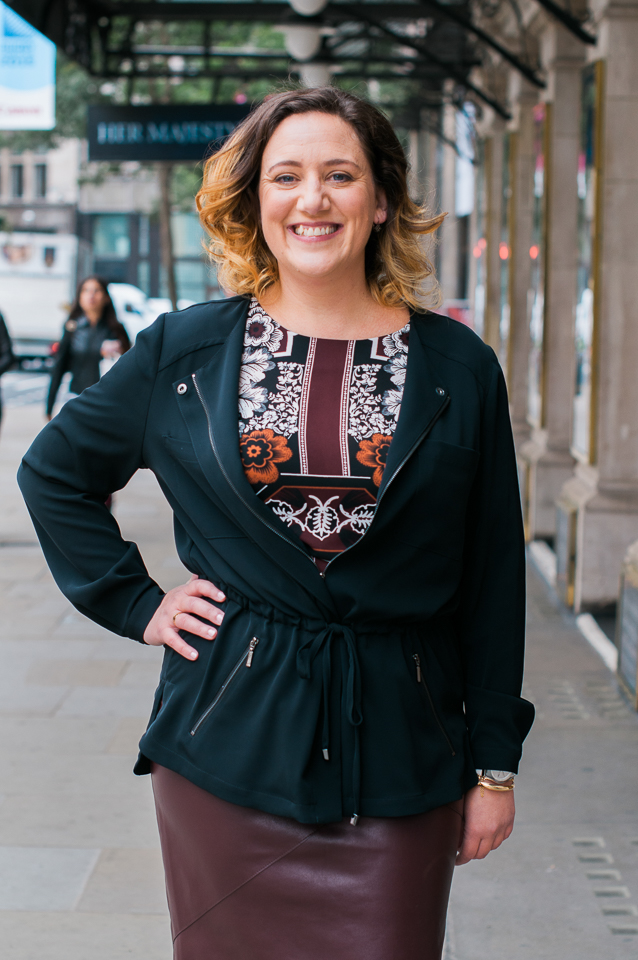PRIVATE TUITION SERVICES
Do you need to learn Spanish?
Personalised tuition for all your learning needs with a qualified and experienced native teacher and coach
Are you ready to start?
Hola, me llamo Beatriz
I am the Founder at Spanish Practice Club where we teach and coach select students who are eager to become fluent bilingual speakers.
We do this using results-based online courses, live programmes and an engaged community of language partners.
I was born in sunny Andalucía in Spain and have been living in the UK for over 30 years so I enjoy the best of both worlds, like most of my students!
I am a qualified and experienced bilingual tutor, studied foreign languages in Spain and translation at the University of Westminster in London. I am a life and business coach by the ICF (ACSTH), specialised in student engagement, leadership and personal development, and I have a C2 Proficiency Level in English by the University of Cambridge.
On a private level, I work with ambitious students in person and online, as well as with management teams in small organisations. If your goal is to travel frequently or move to Spain, or perhaps you already live there and you wish to take advantage of all the personal, professional, social and cultural opportunities that this amazing opportunity offers, please get in touch for a personalised plan.
When I am not running the club, you can find me among books, in a museum or exhibition, on a plane to somewhere exotic, on the wonderful beaches of Cádiz or spending quality time with my partner, friends and family!

Great! but... how can you help me, I hear you ask!?
Tuition subscriptions represent the ultimate in convenience for committed learners.
You will receive a service you love on a regular basis without having to renew your lesson plans manually whilst assisting with budgeting!
You will only pay for what you use. This is perfect for the modern, time-poor and ambitious student who just wants to make progress with their Spanish language without worrying about making manual payments
Subscription plans for one to one online tuition
(beginner and intermediate levels)
Monthly plan includes...
Free consultation (20m)
1 hour per week for a month, on the same day and time (via Zoom)
Includes PDF books and learning materials (beginners only) plus homework (both levels) every week
Access to my exclusive Language Partners Facebook group and practise your Spanish speaking skills any time, any day!
Language proficiency assessment on the first lesson (if you don't know what your current level is)
Regular exam papers and unlimited revisions
Email support between lessons, personal recommendations and accountability
Consistent learning every week for fast progress and great results!
Lessons delivered in English or Spanish, your choice
Change lessons any time within your monthly plan (subject to availability)
Auto-renews on a monthly basis
Cancel any time. No refunds.
£199
3-month plan includes...
EVERYTHING in the monthly plan
1 hour per week for 3 months, on the same day and time (via Zoom)
Includes a 5% discount!
Change lessons any time within your 3-month plan (subject to availability)
Auto-renews every 3 months
Cancel any time. No refunds.
£565
Are you ready to skyrocket your Spanish language skills in 2025?
Book your 20m free call with me now to:
Check my 1:1 availability
Book your starting date/time on my calendar (must be within 2 weeks time)
And book your favourite subscription plan
MY APPROACH
I believe in my students' amazing ability to achieve anything they set out to do
As an experienced teacher and coach, I'll give you all the materials, tools, teaching, coaching and encouragement you need, including access to a community of committed language partners so that you can practise your Spanish speaking any time you like, 24hrs a day.
All YOU need to do is take the necessary steps to learn, grow and experience the freedom of becoming fluent fast!
My teaching-coaching methodology includes all the skills students need to feel confident when communicating in Spanish: speaking, listening, reading and writing. I also teach grammar, vocabulary and pronunciation, and my lessons are entirely customised to my students’ needs.
I teach young students, adults, professionals and small groups, online and on site, as well as management teams in small organisations. I also teach Spanish to students who travel to Spain frequently, or are thinking of moving to the country and would like to learn about the social and cultural aspects of the country, and I collaborate in translation and interpretation projects with international companies that work with Spanish speaking clients.
I am an expert in creating productive lessons and fun learning environments and have vast experience in exams and tests preparation such as Cambridge B1, B2, C1, C2 and IELTS. I myself have a C2 Proficiency Level in English by the University of Cambridge.
Students' Love
"I can thoroughly recommend Beatriz as a Spanish tutor.
She assessed my level perfectly and her lesson plans are well constructed, each with a good level of learning and after lesson learning, and with a clarity of direction. A real find!"
Paul C.


"We are complete beginners and Beatriz's very structured, professional and personable approach is perfect for us"
Dan and Amelia B.
"Thank you for the conversation class. Really enjoyed it and nice to meet other students. Very good practice!"
Susan B.

"If you talk to a man in a language he understands, that goes to his head. If you talk to him in his language, that goes to his heart"
NELSON MANDELA
LET'S WORK TOGETHER
Here is my question to you,
how important is it to you to become fluent in Spanish?
Let's talk!
© 2026 Beatriz Valverde Garzón, Spanish Practice Club - Terms and Conditions